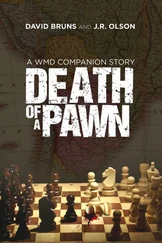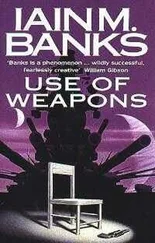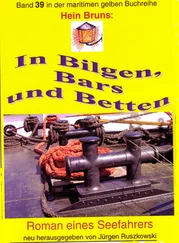Rafiq flipped open the cover of the worn Canadian passport. His picture stared back at him, along with his new name: Ralf Faber. He looked up at Hashem. “What is my course of study?”
Hashem smiled. “International relations.”
* * *
“Rafiq, please, we must hurry.”
Hashem’s hand appeared on his elbow, guiding him toward the steep gangplank that connected the deck of the ship to the pier. The steel rang hollow under his feet and he stubbed his toe on the inch-high treads that ran across the path.
The captain, a short Malay with more gums than teeth in his smile, scrambled ahead of them. He wore a holed tank top and cutoff shorts, and thick yellow toenails poked out from worn sandals. He turned when they reached the deck.
“This way, boss,” he called with another gummy grin. His jaws worked rhythmically on a wad of something and he spat over the side of the ship.
Rafiq stepped onto the deck of the Lumba . Even with it tied to the pier, he felt a tremble beneath his feet, as if the floor was moving. His stomach quivered.
Three months…
“This way, this way. You come, you come.” The little captain hopped between open spots on the deck, while Rafiq and Hashem picked their way along with more care. They had discussed the option of using a large container ship to transport their cargo across the ocean, but the threat of detection from a radiation monitor in a large port was too high. No, they needed anonymity of the kind afforded them by one of the thousands of smaller, ancient breakbulk freighters that plied the seas running odd lots of loose, or “broken,” cargo between ports too small to handle the mega container ships.
“Come, come,” the Malay captain called again. He passed through the dim outline of a door and shot down a steep staircase with the agility of a monkey coming down a tree. The captain placed his hands on the bright steel rails that bracketed the narrow steps and, lifting his feet, slid to the bottom. He grinned up at them. “You try.”
Hashem went down the steps first, his feet ringing on the steel treads. Rafiq hesitated at the top. A thick smell drifted up to him, a fog of diesel fuel, fetid seawater, and unwashed bodies. He swallowed hard before following Hashem down into the hold.
The staircase, or “ladder,” as the crew called it, made three hairpin turns before they reached the bottom, the smell intensifying at each level. The little captain waited at the base of the steps with Hashem. He spat into the space behind the stairs.
“I show you the lock room,” he said, moving away again in his bandy-legged gait. They conversed in English, the only language the three of them had in common, although Rafiq had his doubts about the captain’s real grasp of the language.
They moved forward in the ship — at least, Rafiq thought it was forward; it was hard to tell when they were belowdecks. The passageway was not even large enough for two men to pass shoulder to shoulder, and the steel walls seemed to close in about him as they walked deeper into the ship. He could hear a faint clanking of metal on metal overhead, like some distant Morse code.
The hallway dead-ended at a massive watertight door with a large wheel in the center. The captain moved a long handle and spun the wheel, then pulled the heavy door open and latched it on a hook in the wall. He entered the room, flipping on a light switch. A lone bulb in a protective cage against the ceiling cast a harsh light on the space, a cube of metal walls, maybe fifteen feet across. Save a foot-square ventilation grating and an ancient black telephone hanging on the wall, there was nothing else in the space.
“This is perfect,” Hashem said. He pointed to the door. “Lockable from the inside, one entrance in or out.”
Rafiq said nothing. He was feeling claustrophobic just looking into the room, and he could only imagine how the space heaved when this tiny boat was at sea…
Three months.
Hashem turned to the captain. “Perfect. We need to have an armed man in this space at all times. Understand?”
The captain’s eyes narrowed in his nut-brown face. “Armed? What this mean?”
Hashem made a pretend gun out of his thumb and forefinger. “Armed. Guns. Man with gun stay here all the time with our cargo.”
The captain’s greasy hair swung as he shook his head. “Not possible. Nobody down here at sea. Nobody allowed.” His eyes stayed slitted and he gave Hashem a broad smile as he spoke. He spat on the deck in the room, leaving a blotch of moisture on the painted metal plates.
Rafiq closed his eyes. The man wanted more money — let Hashem handle that. He nodded to his brother and pointed up to indicate he was going topside. Hashem waved him away.
Even the horrible-smelling dockside air seemed fresh after the stench of the hold. Rafiq struggled to get his stomach under control as he made his way back to the pier.
Jamil and Farid, the pair guarding the cargo, might have been twins. They were squat and powerfully built, with thinning hair and full beards, and both held their AK-47s with an ease that spoke of long practice. He nodded to Jamil and received a grunt in return. Hashem had said to bring his best fighters. Unfortunately, fighting skills and personality rarely came in the same package. This would be a long couple of months.
The wooden box was about the size of a coffee table. It was heavy, but a pair of men could lift it if they needed to. He mentally measured the narrow end and decided it would fit through the watertight door of the special hold.
Hashem joined them, smiling and bouncing on the balls of his feet. He handed Rafiq a large triangular key on a braided lanyard. “It is done. Here is the only key to the special hold. The little bastard held me out for more money, but you and your men have access to the hold twenty-four hours a day.” He unslung a leather bag from his shoulder and passed it to Rafiq. “There’s money — I paid Sing Wat, the captain, half already, in dollars. He gets the rest when you reach your destination, and there’s plenty for bribes… or entertainment for the men.”
Hashem stepped aside to let the dock workers fix a sling onto the cargo. He and Rafiq watched as the wooden box swung high into the air, stabilized for a second, then moved over the deck and lowered into the hold.
Hashem lit a cigarette. In the light, it looked to Rafiq like his hands were shaking. His voice was low and urgent when he spoke again. “There is a new phone in the bag as well, and the codebook for our communications. I can’t stress how important this mission is, brother. You hold our future in your hands.”
“How long, Hashem?”
The tip of his brother’s cigarette glowed a fierce orange, and he blew out a long stream of smoke before he answered. “Years. Maybe never, who knows. Our strength is our patience. When they think they’ve won, you will be there to light a fire the likes of which the world has not seen in many decades.”
Rafiq kept his face very still so as not to betray the feelings that roiled his insides. Years… years of his life spent waiting, for what? He looked up at the deck of the ship where Captain Sing was waving to him. His stomach clenched.
But first he needed to make it through the next couple of months.
Minneapolis, Minnesota
15 December 2007 — 0600 local
The hatch of the 1996 Subaru Outback wheezed open, the sound loud in the stillness of his parents’ driveway. Brendan had driven this car in high school, and he remembered to push the hatch fully open so he didn’t hit his head.
He set down the box of groceries, then wedged it in place with his duffel bag. Not much gear for a week at the cabin. He could remember the summers when he and his brother went to the cabin with his grandparents: the back would be packed to bursting, along with gear lashed to the top and a trailer or bike rack to boot.
Читать дальше












